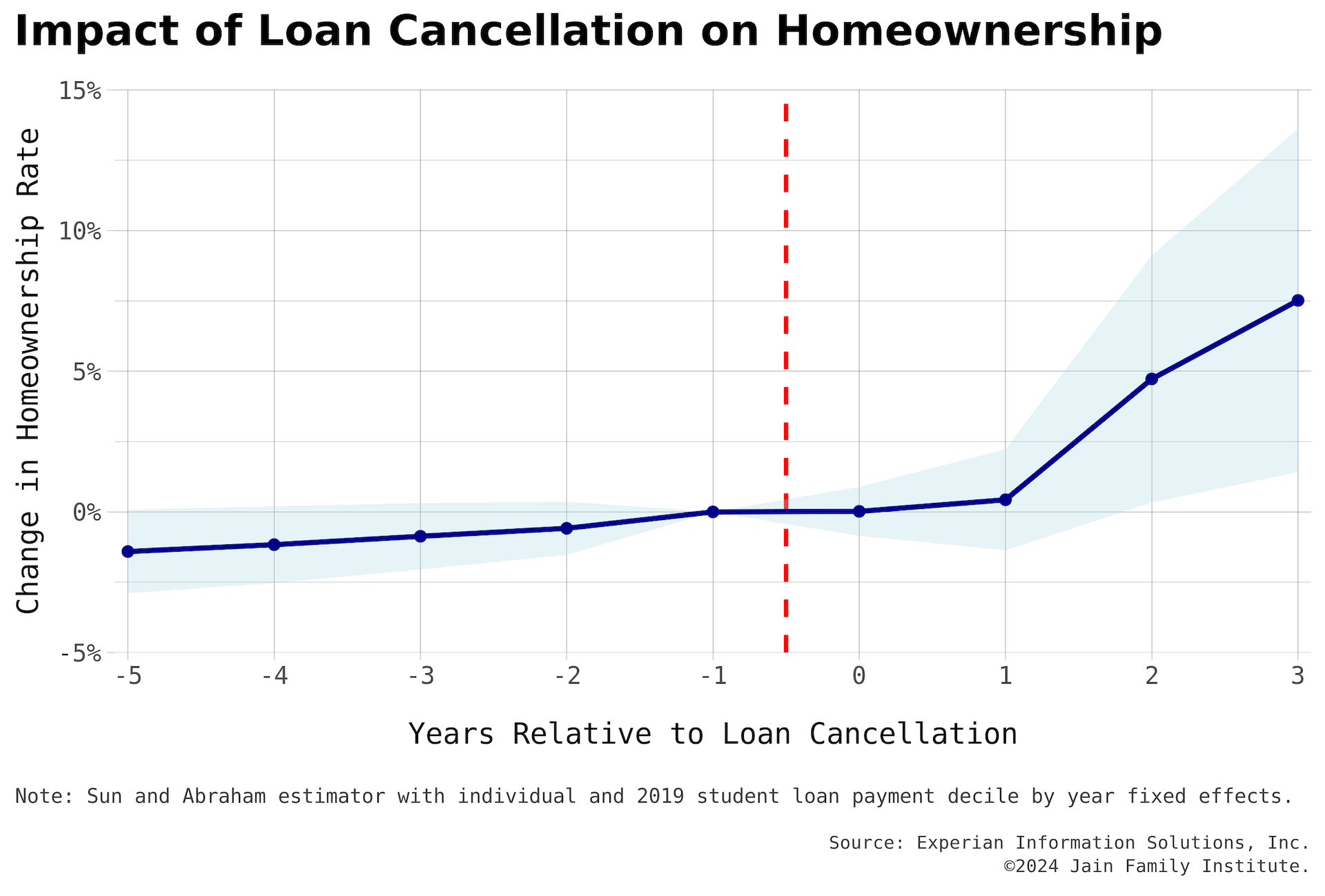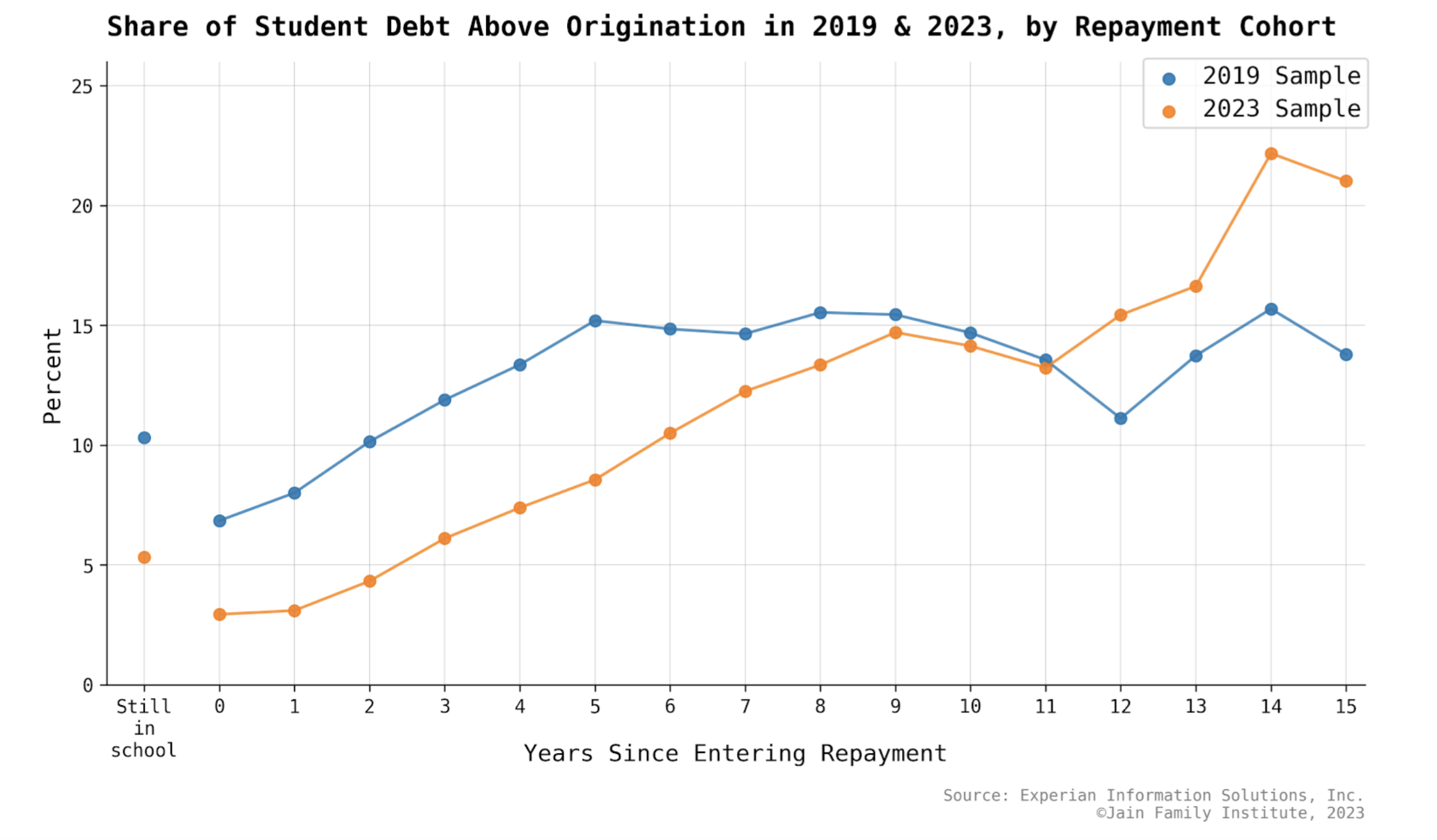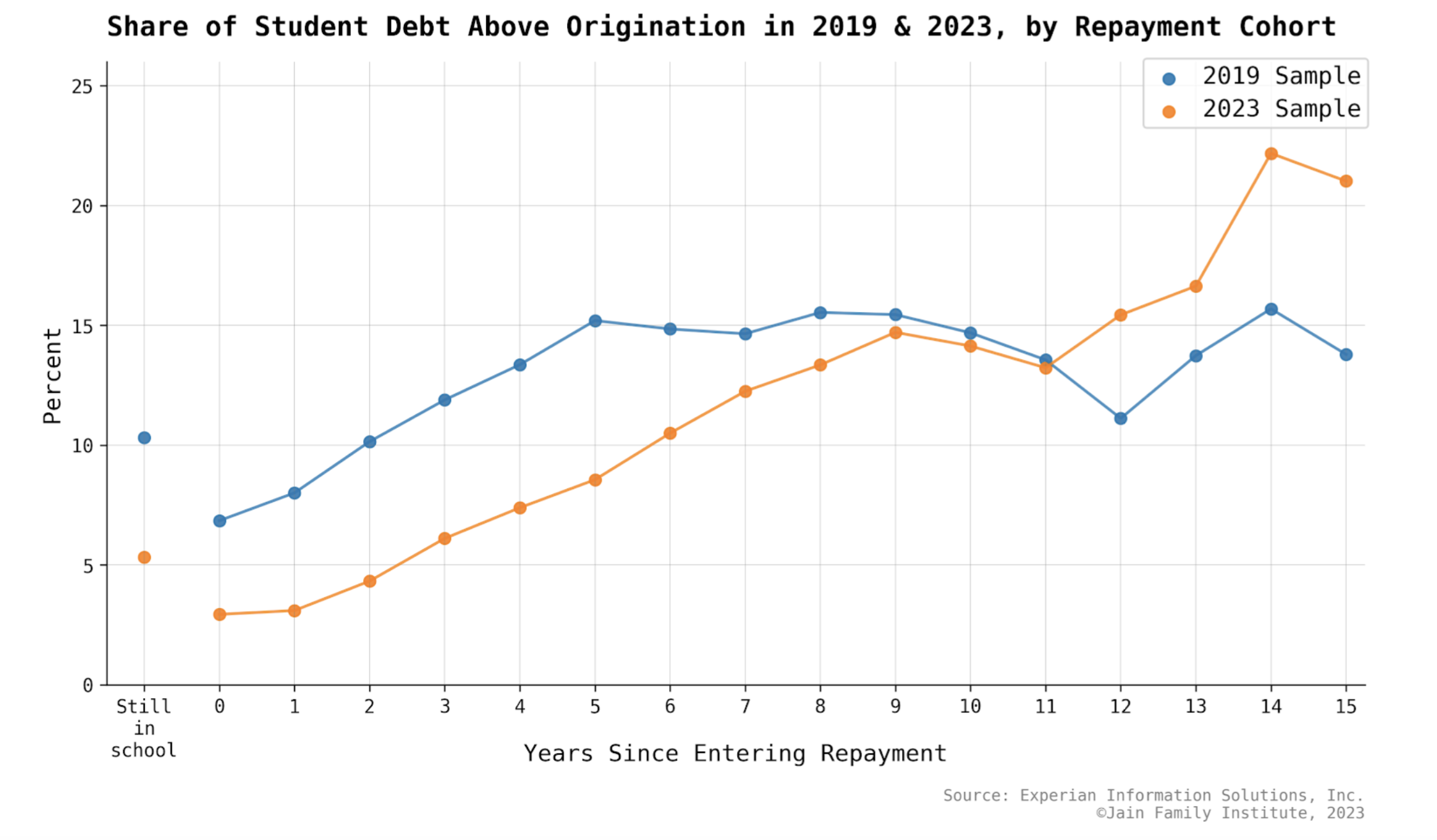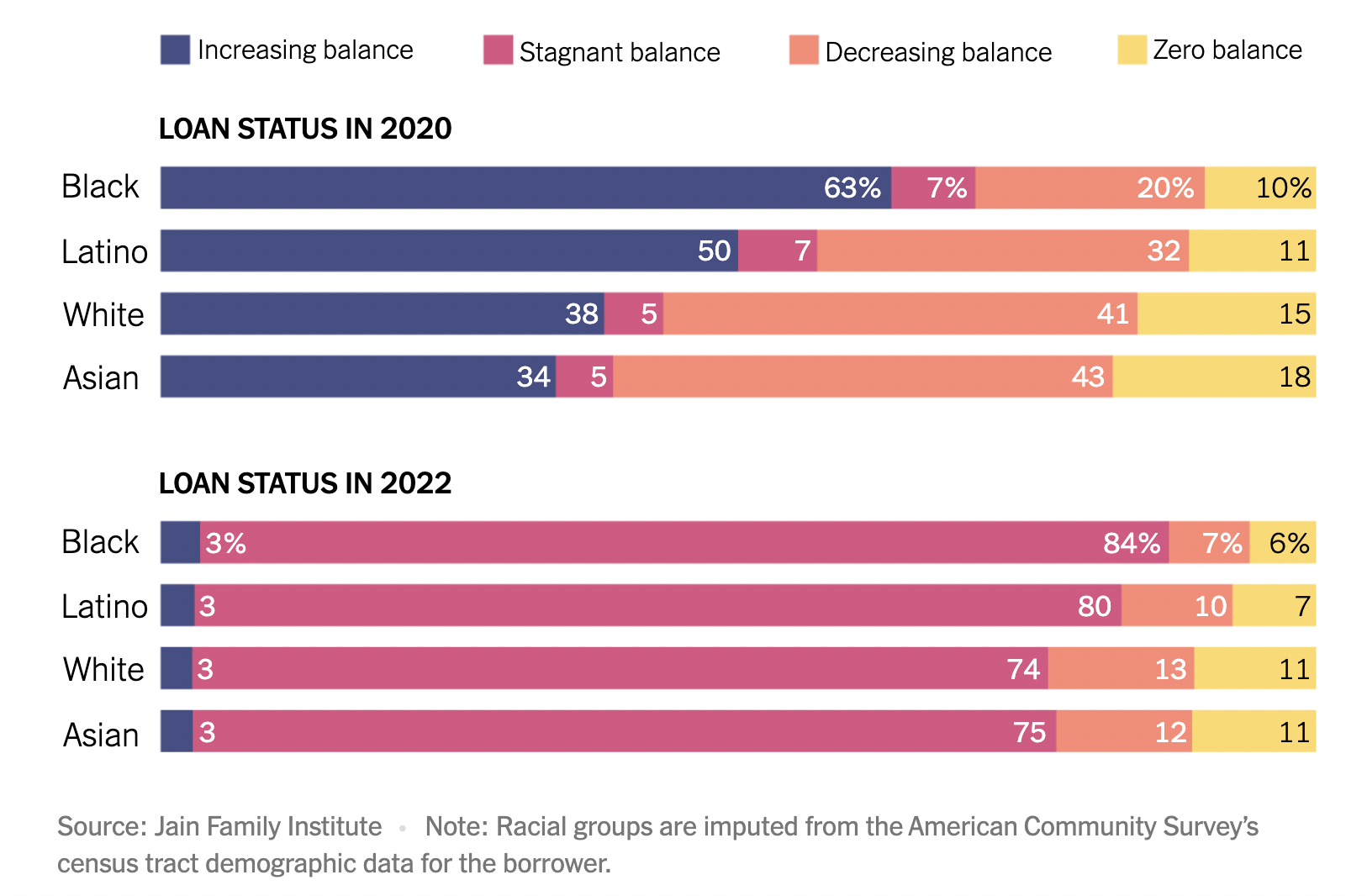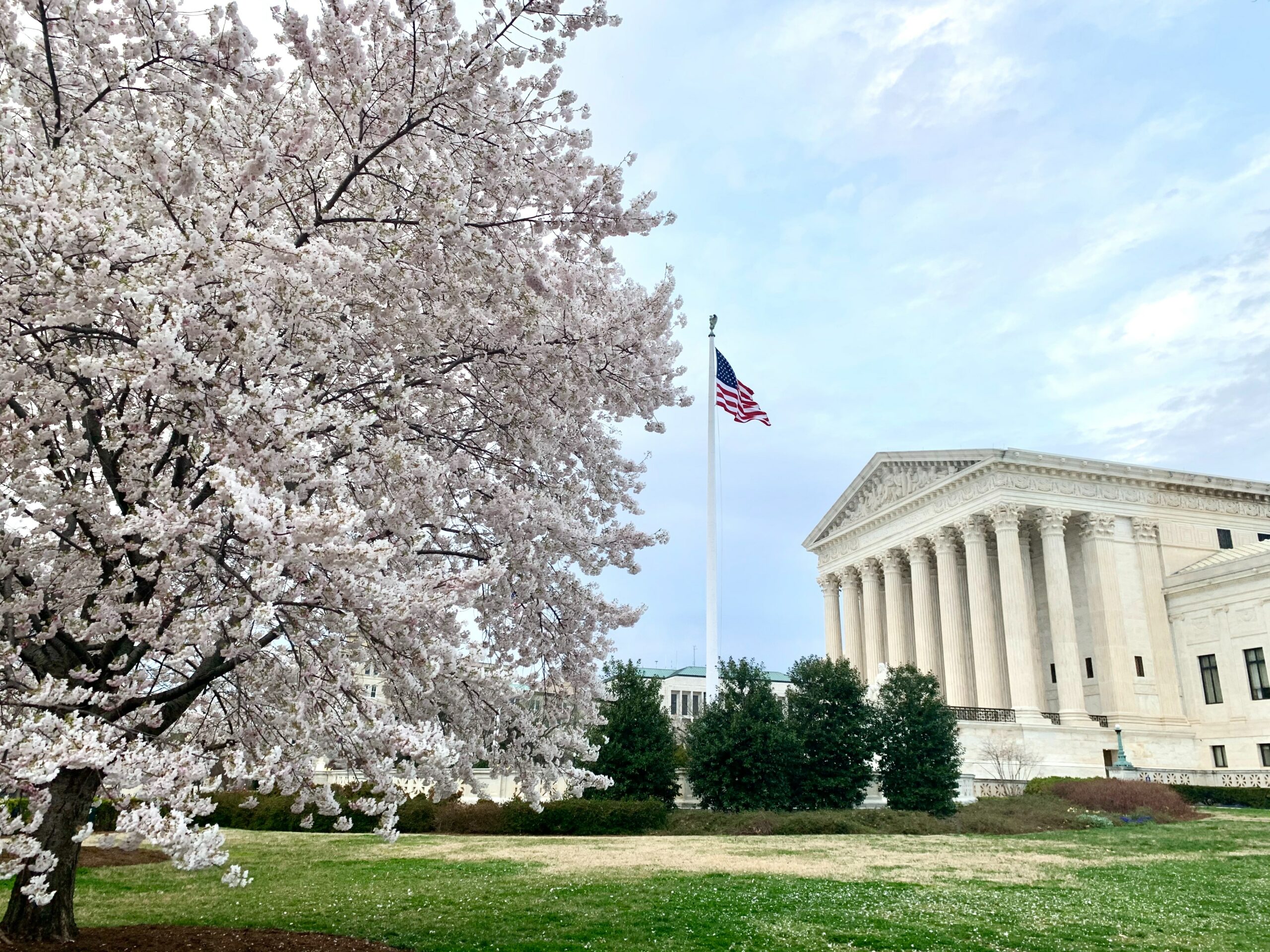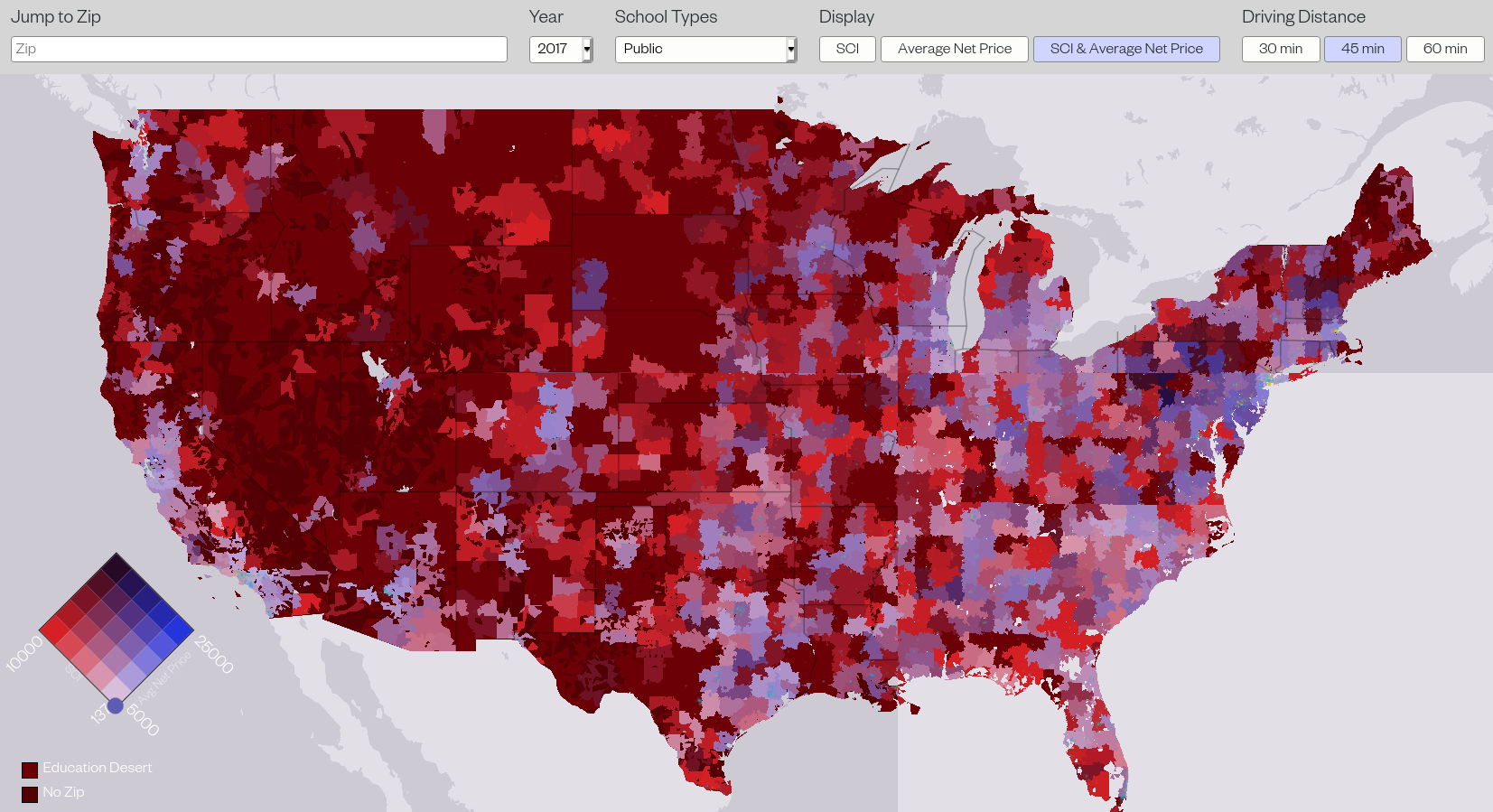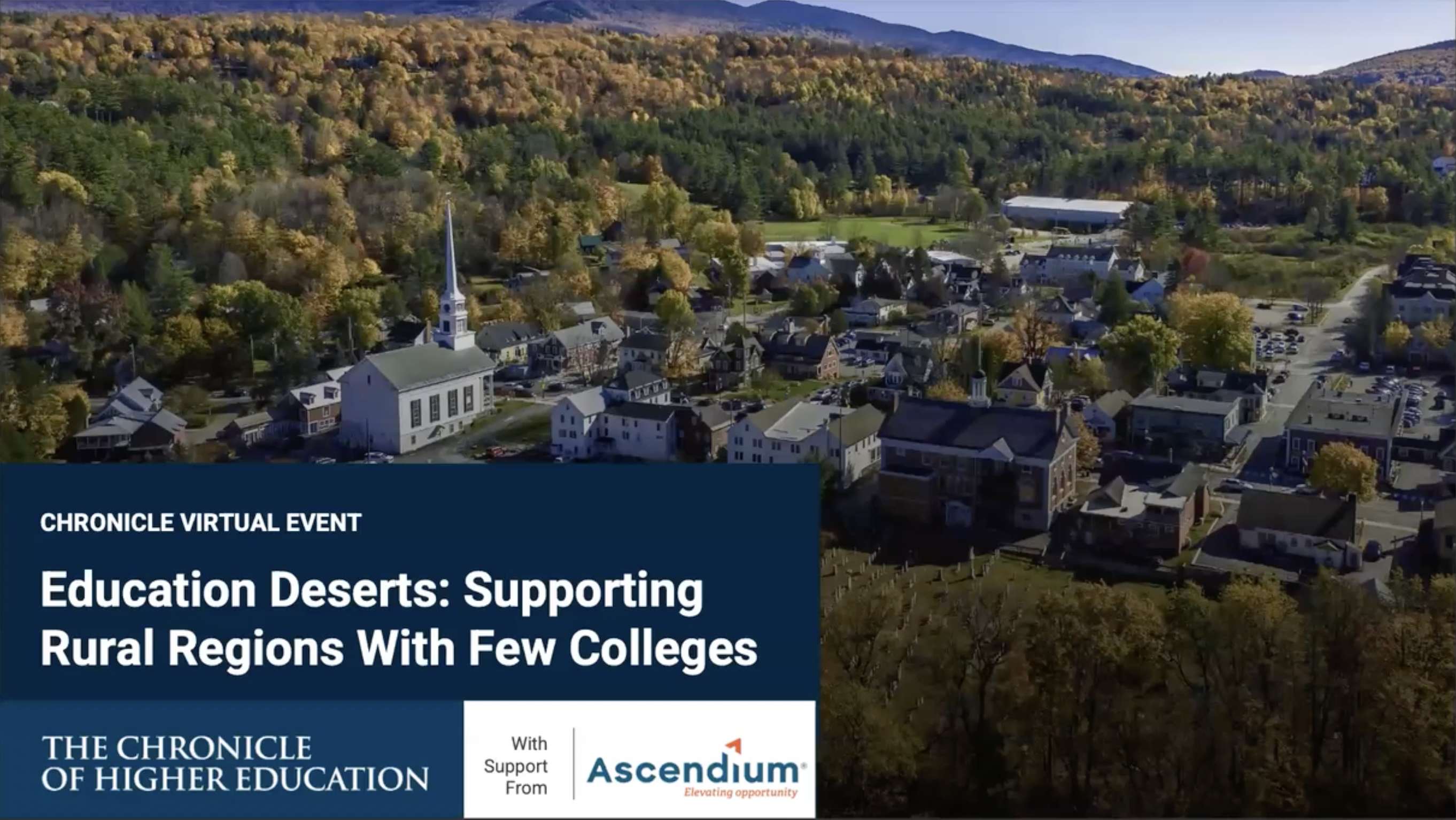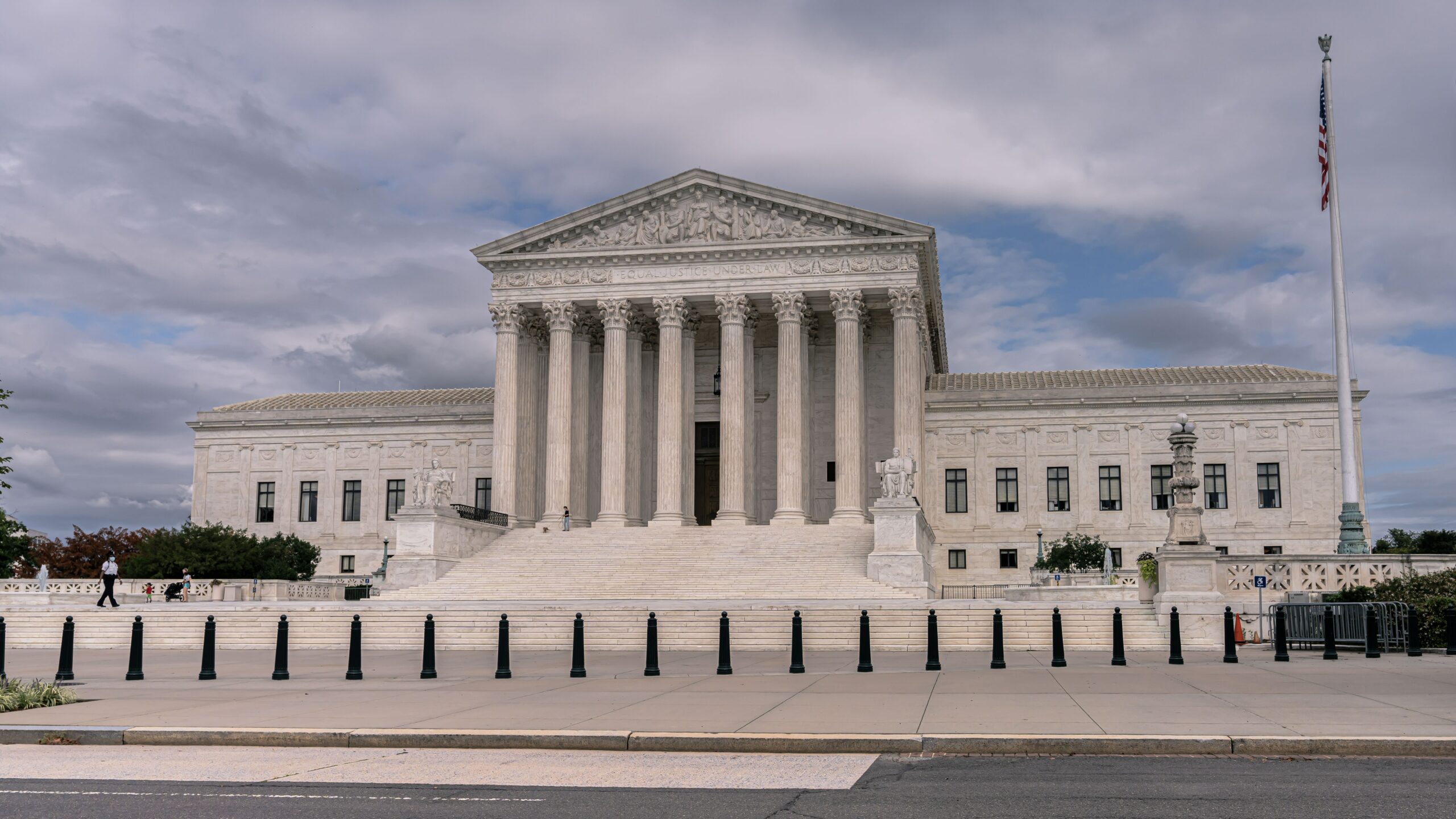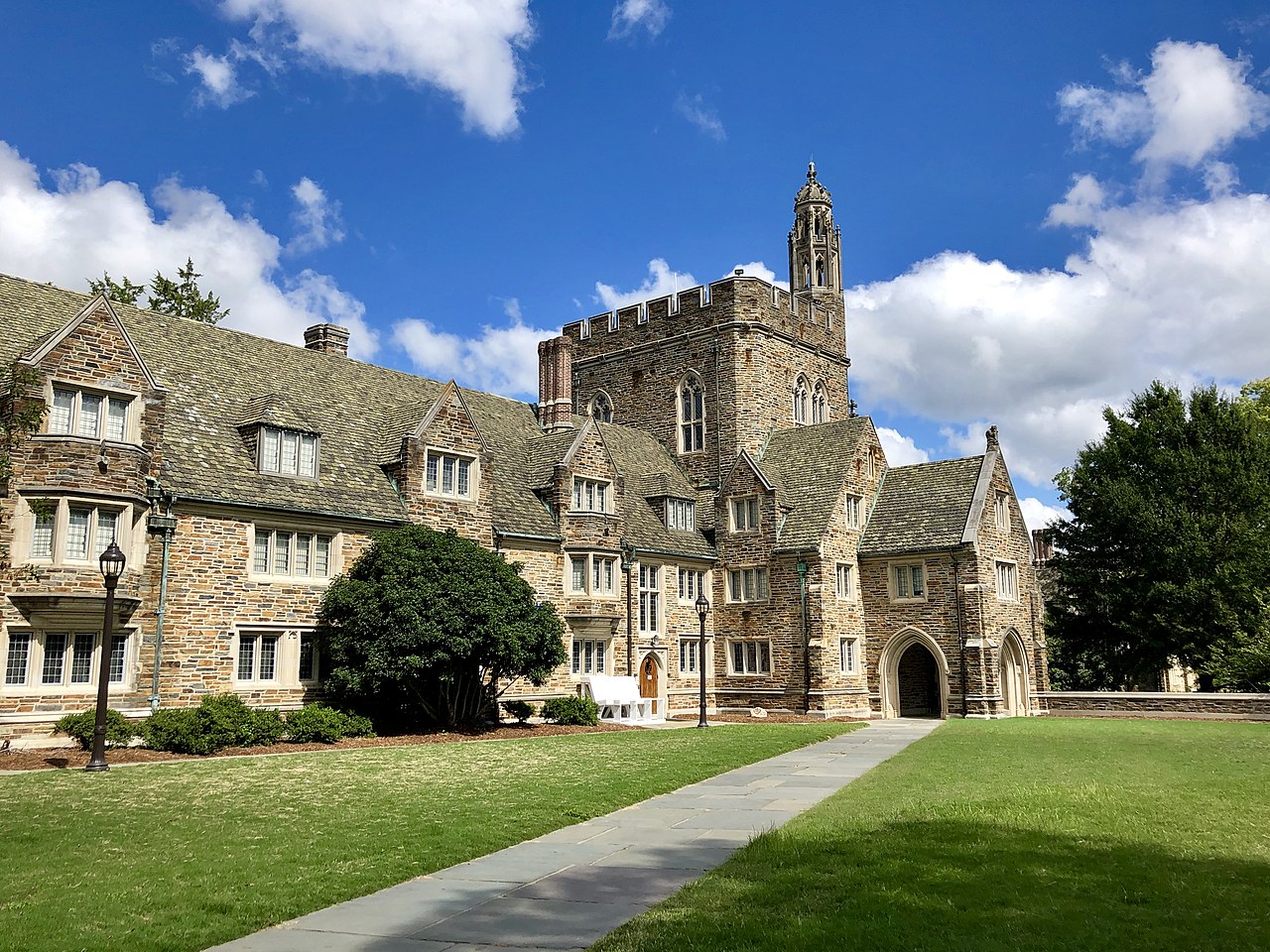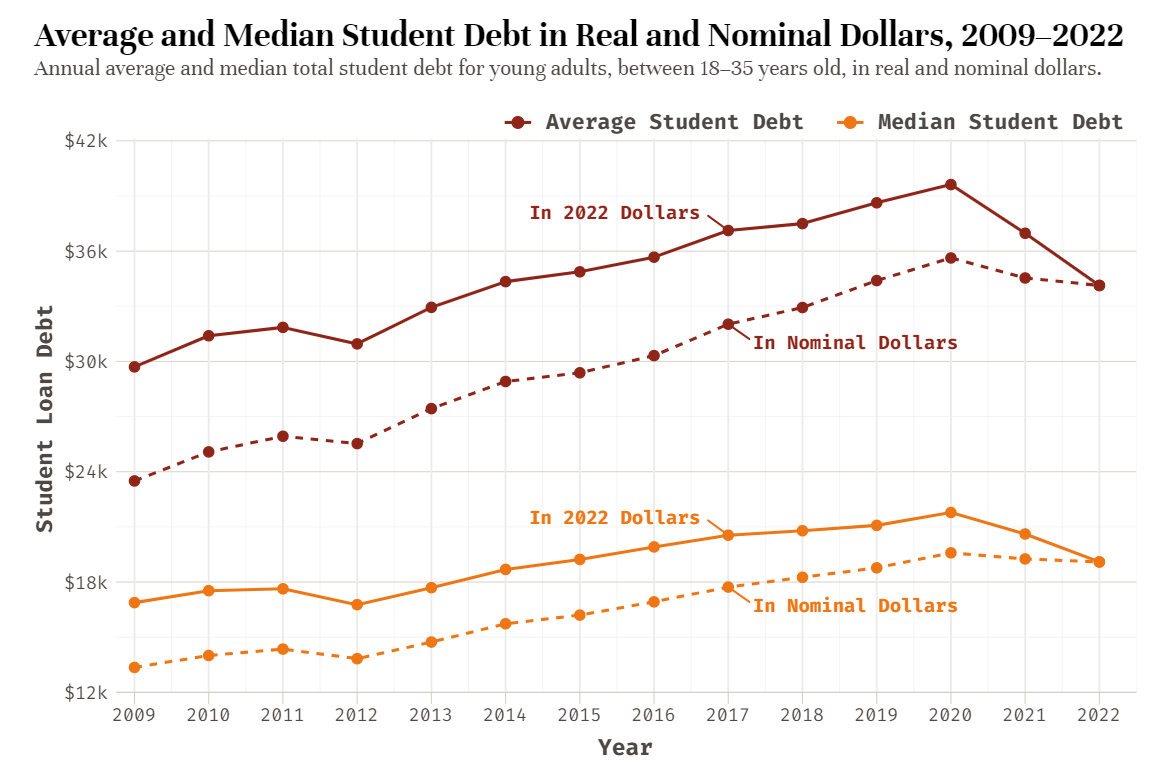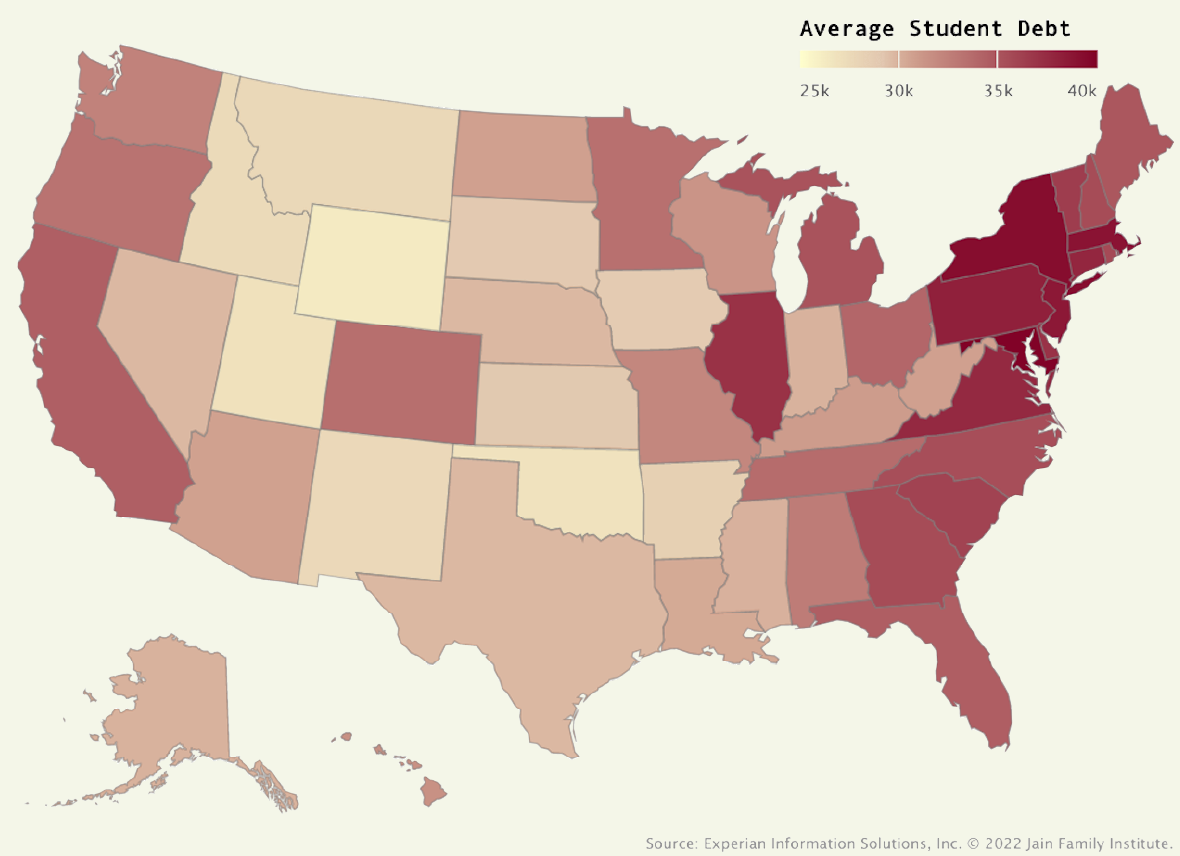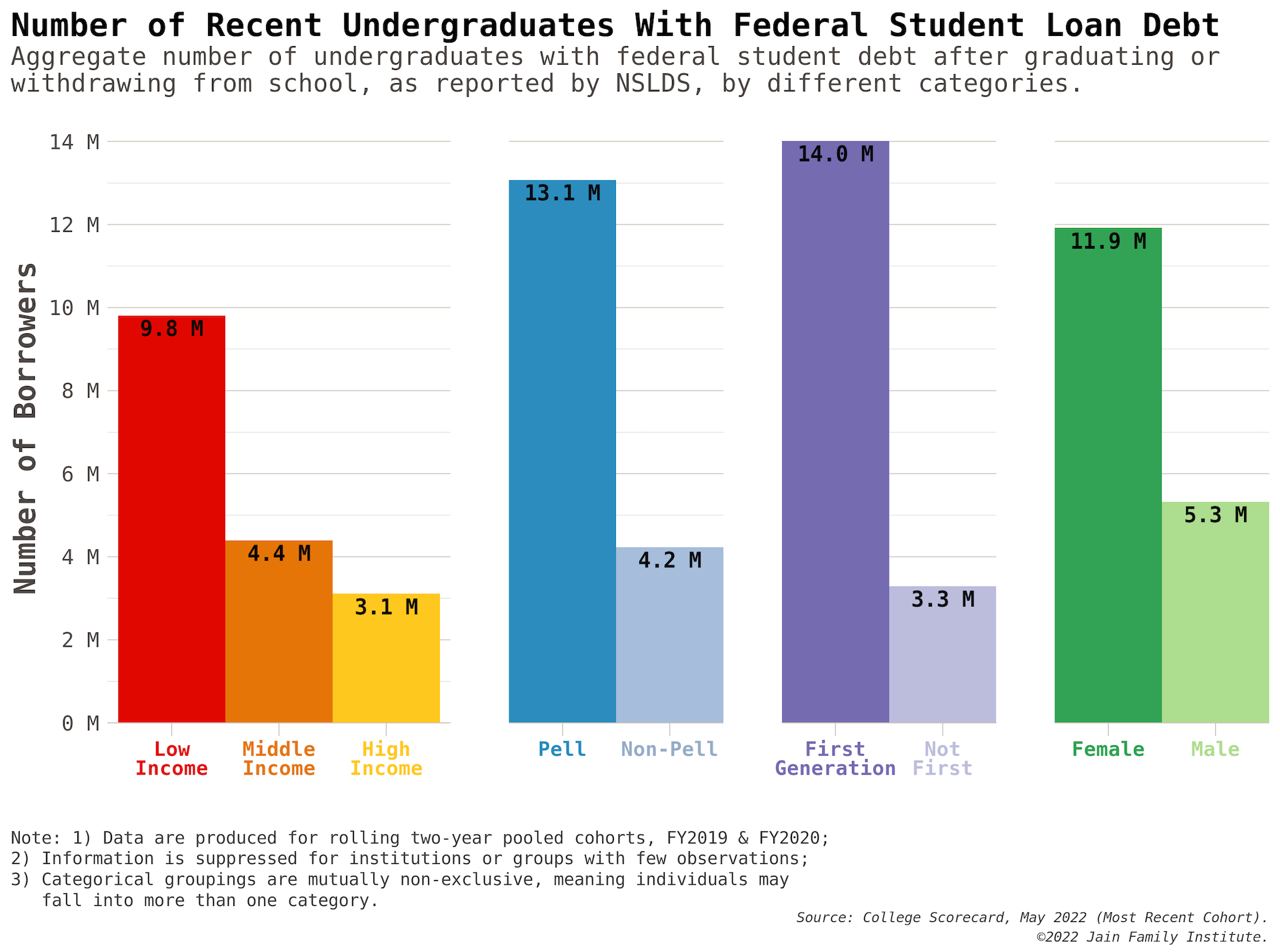Higher Education Finance
The American higher education system is afflicted by a crisis of quality, affordability, and access that belies its role in building an equitable and just society. This has found most pernicious expression in the mounting problem of student debt, a $1.7 trillion burden affecting over 42 million people. This burden often now extends to students’ families, and is disproportionately shouldered by historically marginalized groups. Absent any meaningful constraint on college costs, the student debt trap risks putting higher education – and its promise of economic mobility – out of reach for ordinary and low-income Americans.
JFI approaches the problem of higher education finance in two principal ways: researching the system as it exists, and formulating new mechanisms for financing higher education in the future. We have broken new ground in our analysis of individual- and institution-level datasets, including pioneering work with credit reporting panel data, to offer a detailed picture of student debt, examining race, ethnicity and class intersections, labor markets, intergenerational wealth, and the impact of institution type and geographic concentration. Our findings have highlighted issues with the system for financing higher education well beyond rising tuition, questioning the assumption that student debt “pays for itself” through increased earning power. We have extended the policy picture to cover the problem of labor market credentialization and resulting non-repayment, especially for nontraditional borrowers whose economic life cycles are thereby delayed, as well as institutional segregation in the higher education system. Through this work, we have shined a light on the true long-term costs of a system financed by individual-level student loans.
With this analysis, we aim ultimately to identify high-impact policy interventions to address the existing debt burden and the broader affordability crisis. In an earlier phase of our work, we designed, consulted on, and produced research on income-contingent financing, an alternative to traditional student loans under which students pledge a percent of their income over a limited period.
PARTNER WITH US
We welcome academic and philanthropic partners interested in using our student debt data for collaborative or independent research. We have collaborated with educational institutions, scholarship funds (notably, the Student Freedom Initiative), workforce development agencies, and a range of investors on income contingent finance pilots, and we welcome further inquiries. We also provide analytics, evaluation, and design consulting for existing providers in order to ensure equitable, transparent and accountable financing.
PARTNERS

Featured Partners
Higher Education Finance Contributors

Eduard Nilaj
Fellow

Ege Aksu
Fellow

Francis Tseng
Lead Developer

Laura Beamer
Lead Researcher

Marshall Steinbaum
Senior Fellow

Roberta Costa
Research Manager

Sérgio Pinto
Fellow

Sultana Fouzia
Fellow

Yunjie Xie
Fellow
Related Tools
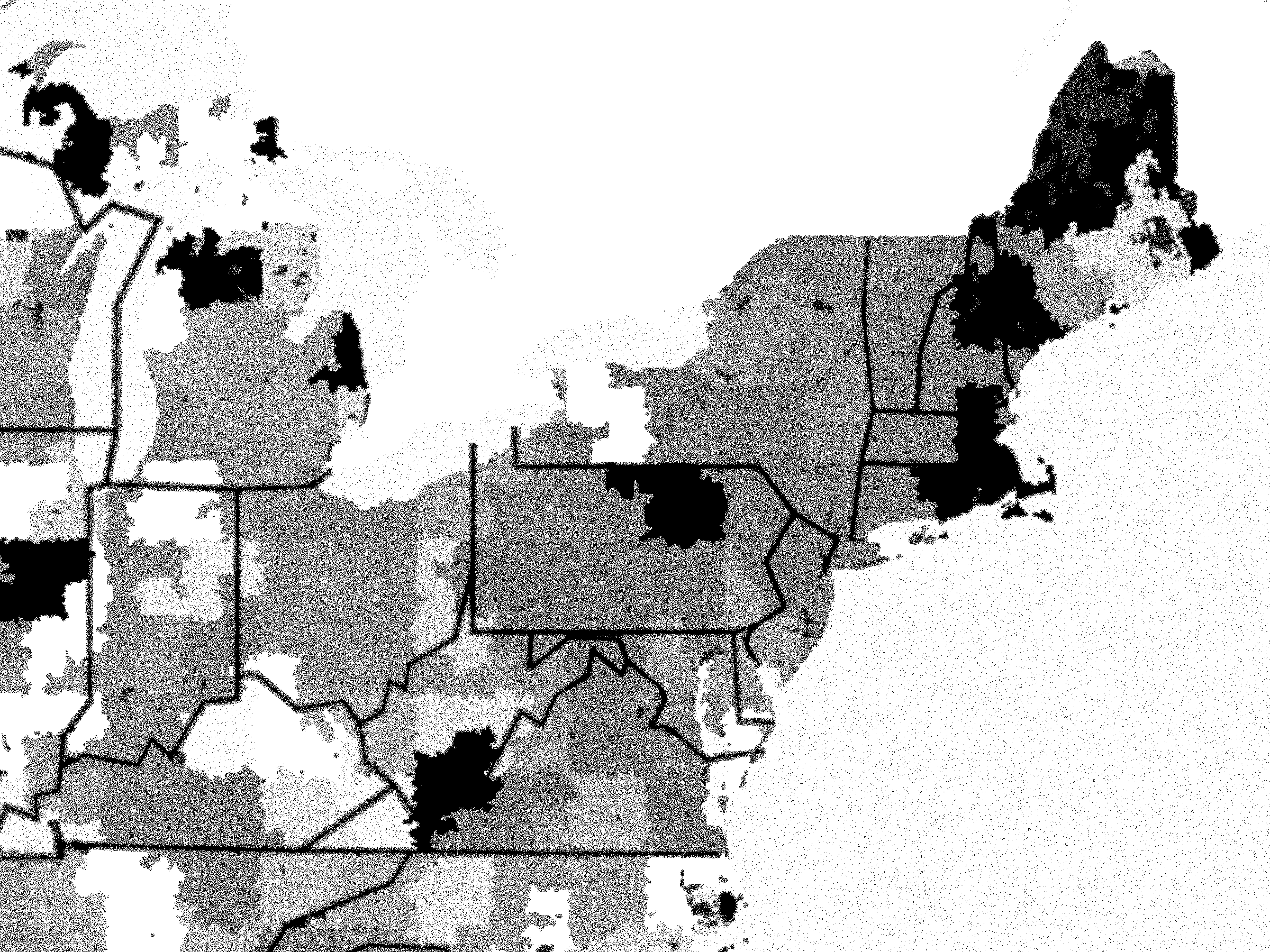 Tooling
Tooling
Mapping Student Debt
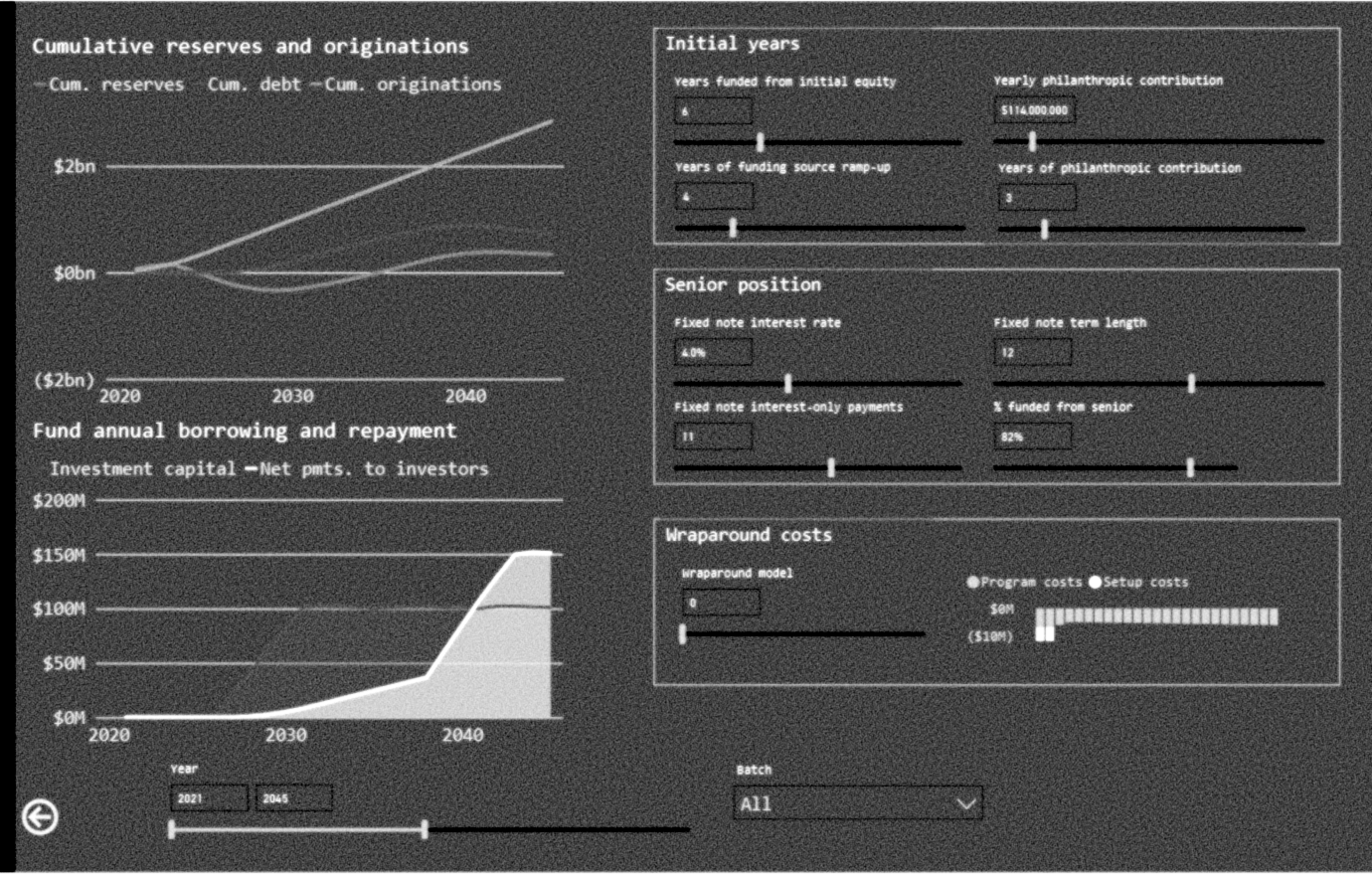 Tooling
Tooling
SFI Model
Related Publication Series
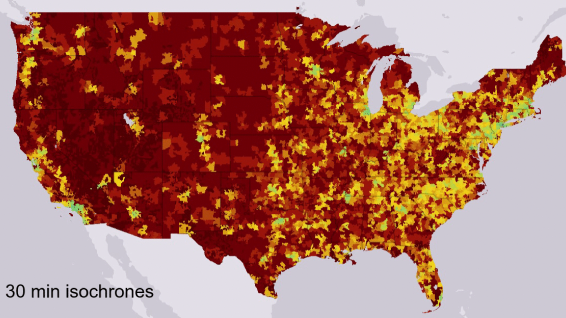
Millennial Student Debt
Recent Updates
New Report on Student Debt Cancellation; Coverage in Marketwatch
Marketwatch: "The analysis is the first to provide a sense of who has benefited from the $153 billion in debt cancellation...
A First Look at Student Debt Cancellation
The first analysis of the policy-driven student debt cancellation that has been enacted over the last several years.
Part of the series Millennial Student Debt
ISA research cited by White House and others
This research formed part of a White House issue brief, "The Economics of Administration Action on Student Debt."
Working Paper — Navigating Higher Education Insurance: An Experimental Study on Demand and Adverse Selection
A survey-based experiment in collaboration with the Philadelphia Federal Reserve.
New Research in Millennial Student Debt: Relief for Borrowers with Negative Amortization
JFI's Higher Education Finance team publishes the first installment of part 14 of their flagship Millennial Student Debt research series.
Student Debt Relief for Borrowers with Negative Amortization
The first installment of Part 14 in the Millennial Student Debt Series, this report analyzes systemic issues in student debt non-repayment...
Part of the series Millennial Student Debt
Press Release: Student Debt and Homeownership Barriers in Washington, D.C.
A new collaborative report from the Jain Family Institute (JFI) and the Economic Policy Institute (EPI) sheds light on the...
Student Debt and Homeownership Barriers in Washington, D.C.
Part 13 in the Millennial Student Debt Series, this collaborative report sheds light on the intertwined challenges of student loan debt...
Part of the series Millennial Student Debt
Laura Beamer and Marshall Steinbaum publish editorial in the New York Times
"America's Student Loans Were Never Going to Be Repaid."
JFI’s Higher Education Finance research in The Guardian
Eduard Nilaj spoke to the Guardian after the Supreme Court's ruling against debt cancellation.
JFI’s Millennial Student Debt work widely covered in media
In light of a Supreme Court decision and the end of the repayment moratorium, coverage in Boston Globe, Forbes, Al-Jazeera,...
Fortune covers Millennial Student Debt research
On the resumption of federal student loan payments in October.
The New York Times covers JFI’s latest Millennial Student Debt report
On the upcoming end of a pandemic-era policy that has greatly benefitted student borrowers: the student loan repayment pause.
New Research in Millennial Student Debt: The Repayment Pause and the Continuing Crisis of Non-Repayment
JFI's Higher Education Finance team finds striking positive effects of the pandemic-era student loan repayment pause.
The Repayment Pause and the Continuing Crisis of Non-Repayment
Part 12 in the Millennial Student Debt Series, this report analyzes student loan repayment during the pandemic repayment moratorium.
Part of the series Millennial Student Debt
Forum on Education Deserts: Supporting Rural Regions With Fewer Colleges
On May 23, The Chronicle of Higher Education hosts a forum featuring JFI's Laura Beamer on higher education deserts in the...
Eduard Nilaj’s higher education analysis in Supreme Court amicus brief
Nilaj's work from Millennial Student Debt was cited by student loan experts.
Coverage of Millennial Student Debt
Marketwatch, Fortune, and Bloomberg covered our recent releases on the student debt crisis.
New Release: JFI’s Annual Student Debt Report, 2022
The 2022 "Student Debt and Young America" annual report shows a continued debt crisis but promising trends during three years of...
Student Debt and Young America in 2022 – Annual Report and Data Comparison Tool
The annual report provides a full analysis of the state of student debt in 2022—and what it could look like...
Part of the series Millennial Student Debt
The Distribution of Student Debtors: Data, Narrative, and Debt Cancellation
The report analyzes demographic distributions of student debt burdens and repayment, providing a counterpoint to narratives that suggest the wealthy...
Part of the series Millennial Student Debt
New Student Debt Report Compares Debtor Makeup to Narratives on Debt Cancellation
The tenth installment in the ongoing Millennial Student Debt project, Laura Beamer's newest report combines three datasets to analyze debt...
Press coverage on JFI’s Higher Education Finance research
A roundup of recent coverage.
Research by Laura Beamer and Eduard Nilaj in the New York Times
JFI's higher ed research cited by David Brooks

